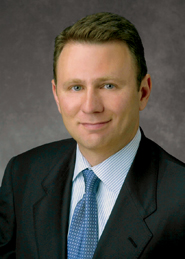Capital markets jobs are not forever.
However, capital markets careers can be very long and fruitful despite changing firms. Just ask Brian Fagen, Managing Director Head of Execution Services at BNP Paribas CIB, who now calls BNP Paribas home after almost a decade at Deutsche Bank. At the German Bank he was Head of North American Execution Services Sales.
Last November, Deutsche Bank agreed to transfer BNP Paribas the firm’s global prime brokerage and electronic equities platforms as part of a major restructure. Also, part of the deal was the transition of technology and several key personnel, including Fagen.

Fagen, in a conversation with Traders Magazine editor John D’Antona Jr., described the ongoing transition from one firm to another.
“The transition started in earnest when the agreement became effective in December of 2019 and will continue through 2021,” Fagen began. “As is typically the case with bringing two franchises together, there are complexities around the integration of technology, platforms and people across a global markets business. While this particular combination includes a wide array of execution and financing products and platforms across multiple regions, our primary focus is maintaining consistency for clients as we progress throughout the transition.”
From a trading perspective, Fagen explained that BNP Paribas is giving clients the optionality of facing itself or Deutsche Bank as their counterparty while still accessing the DB execution platform until it is fully transitioned to BNP Paribas.
And what of the much-publicized Prime Finance business?
“Prime Finance will be a true combination of the strengths of both firms, creating a leading competitor in the industry,’ Fagen said. “BNP Paribas had an existing strength with the highest quality balance sheet and financing capabilities, FX Prime Brokerage, and Cash Prime Brokerage. The DB platform brings a market leading expertise in synthetic prime products including integration with a world class execution platform for our systematic/quantitative client base. We believe this will position BNPP as a ‘go to’ value added provider of Prime Finance capabilities across the complete range of client needs.”
Fagen has been a long-time resident of the trading desk and noted the intricacies of integrating the two separate firm’s groups. He explained that BNP Paribas is focused on building out a truly integrated trading desk model.
“We believe that the next evolution of the trading business will be less defined by the legacy structures of high- versus low-touch or single stock versus portfolio trading, but rather by providers that provide a consistent execution experience regardless of the type of interaction,” Fagen said. “At the core, our clients are either trading a single stock or a portfolio and then decide to execute it themselves or send it to a sales trader for execution.”
BNP Paribas and Fagen are building its new trading business around the concept that execution performance matters, regardless of the way the order is sent by the client, and that they should receive a consistent, high quality execution experience. This includes pre-trade, intra, and post trade analytics, execution consultancy and customization, market color, market structure commentary and other related content. He has a team of senior and experienced execution sales traders who are capable of handling any type of order flow and delivering a differentiated execution experience for our clients.”
“While most sales trading desks are becoming more junior, we have invested in staff that has experience across the legacy high touch, electronic, and portfolio trading products who understand a client’s trading objectives and the execution tools needed to fulfill them,” he said. “The team and execution platform has the ability to add value to the full range of client models including systematic/quantitative trading firms, index and ETF managers, fundamental hedge funds and institutional managers.”
And no trading desk or firm would be complete without technology and a trading platform that is world class. With competition amid the brokers fierce as COVID-19 induced volatility has stimulated trading, it’s a moment BNP Paribas doesn’t want to miss. Fagen explained that the key to all of this is the migration of the Deutsche Bank execution platform over to BNP.
“During the two years prior to the decision to exit equities, Deutsche Bank had renovated the platform from the ground up. This began with new colocation sites at LD4, NY4 and NJ2 and progressed into platform re-writes of DB’s Market Data platform, Smart Order Router, Algorithmic engines, simulation environment, and research frameworks,” Fagen said. “Since the announcement of the transfer of the business to BNP Paribas, Deutsche Bank has continued to invest in the platform and expand upon its reinvigorated architecture.”
To give a few tangible examples, Fagen said Deutsche Bank’s new smart order router combines a large number of variables when it receives an order to determine the most appropriate exchange post at that point in time -when considering the state of those variables- and has proven to reduce the cost to trade for investors dramatically when compared to the old platform. Also, Deutsche Bank DB has re-written its volume forecasting models, an extremely important component to any algorithm, resulting in material improvements in their ability to forecast how much volume will trade on a given day or from the receipt of an order until the close on a single day.
“Finally, Deutsche Bank has deployed innovative research containers which are in the process of iteratively learning how to optimally construct an algorithm based on actions and reactions in the market which are showing quite a bit of promise,” Fagen said. When completed, we believe the combination of these platforms will position BNPP as a unique value proposition for clients in the equity execution and financing business. This will further enhance the existing leadership position the firm holds across the rest of the global Markets franchise.”




